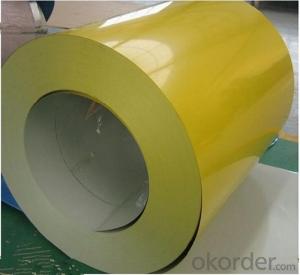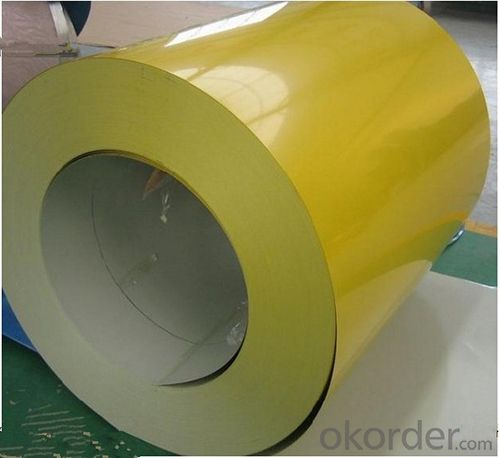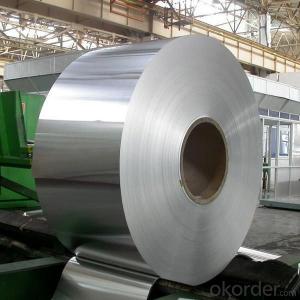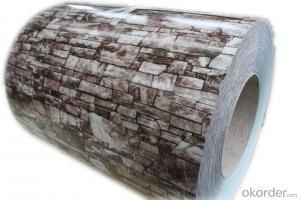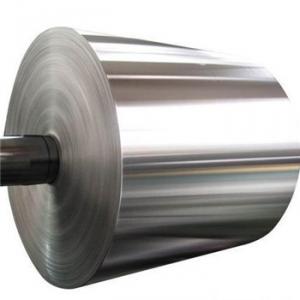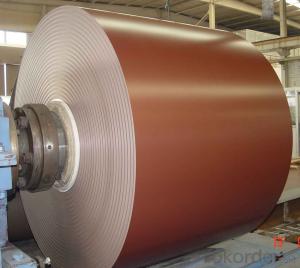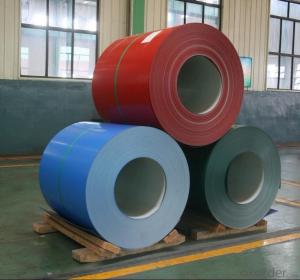Fascia Aluminum Coil for Coated Aluminum Roll in Decoration Materials Production
- Loading Port:
- Shanghai
- Payment Terms:
- TT OR LC
- Min Order Qty:
- 2 m.t.
- Supply Capability:
- 60000 m.t./month
OKorder Service Pledge
OKorder Financial Service
You Might Also Like
Specification
Coated Aluminium Roll For Decoration Materials Production
Alloy | 1050, 1060,1100, 3003 3004 3105 3A21 5005 5052 etc |
Temper | O/H12/H14/H1/H18/H32/H34/H36/H38//H111/H112/H116/H321/T6/T651/T3/T351 etc |
Thickness | 0.1mm to 6mm |
Width | 20mm to 3300mm |
Coil weight | 100kgs to 6 tons depends on actual requirement |
Core material | Aluminum or paper |
Coil inner diameter | 75mm, 150mm, 200mm, 300mm, 405mm, 505mm or as required |
Appplication | construction, roofing, decoration, lamping etc |
Package | eye to wall or eye to the wall for aluminum coil with wood pallet (wooded case also available) |
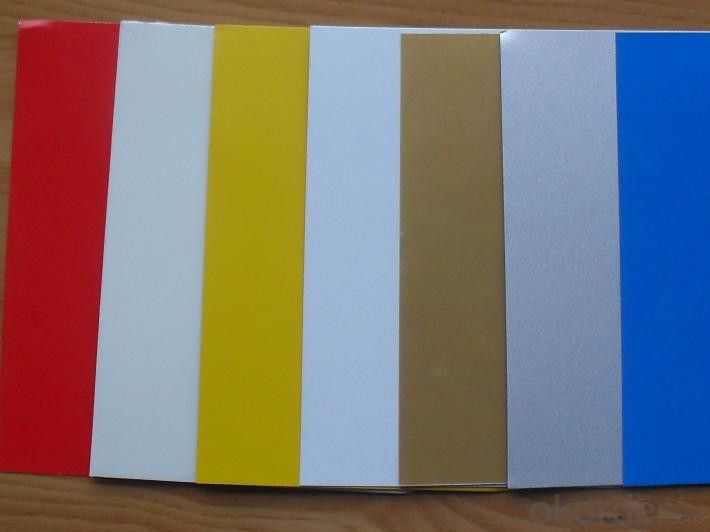
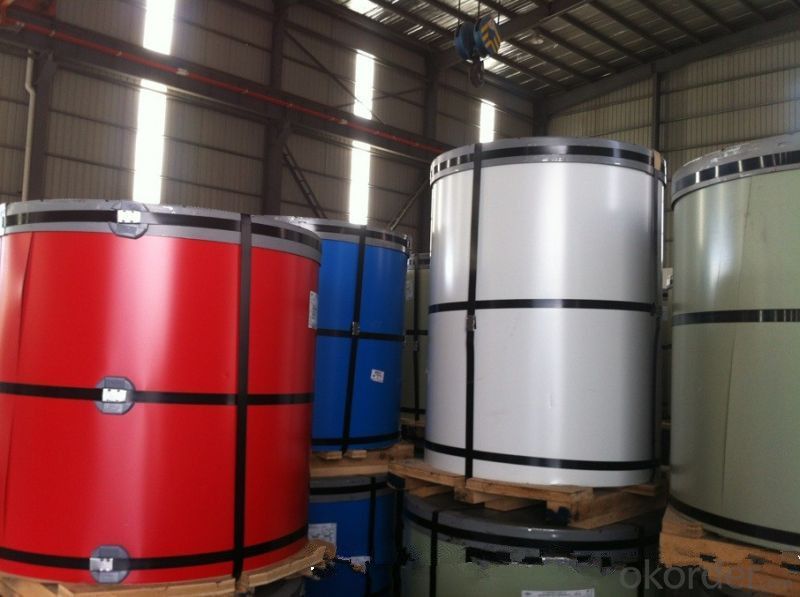
3) Glass curtain wall frame
4) Interior decoration
5) Elevator decoration
6) Signs, nameplate, bags making.
7) Automobile parts material
8) Office and Household appliances: HVAC equipments
9) The consumer electronics: mobile phones, digital cameras, MP3 .etc.
Coating varieties
Polyester Coatings (PE)
PE (polyester) coatings exhibit an excellent combination of hardness, flexibility, flow, appearance, and superior resistance to dirt retention in indoor and outdoor applications. These coatings are highly resistant to abrasion, metal marking, staining, and marring, and require minimal maintenance. Glazetech uses polyester paints which provide excellent colour and gloss retention properties.
Polyvinylidene Fluoride Coatings (PVDF)
PVDF (polyvinylidene fluoride) is a chemical resistant thick film barrier coating commonly used in architectural applications where both excellent appearance and substrate protection must be maintained over a long period of time. This coating is unaffected by most chemicals and solvents and has excellent wear and abrasion resistance. PVDF also has a high dielectric strength, excellent resistance to weathering and the ability to self extinguish.
FAQ
--Q: Do you provide free samples?
--A: Yes, free samples will be sent to you on freight at destination.
--Q: Can I get your latest products catalogue?
--A: Yes, it will be sent to you in no time.
--Q: What is the MOQ?
--A: 2 tons
--Q: What are your payment terms?
--A: We accept L/C, T/T.
--Q: What kinds of alloy can you supply?
--A: 1000 series: 1050, 1060, 1070, 1100, 1145, 1200
3000 series: 3003, 3004, 3105, 3104
5000 series: 5052, 5083, 5754, 5182
6000 series: 6061, 6063, 6062, 6063
8000 series: 8011, 8021
--Q: What’s the coating of top side?
--A: PVDF and PE coating
--Q: What kinds of temper can you supply?
--A: O-H112: O,H12,H14,H16,H18,H22,H24,H26,H,32,H34,H111,H112
T3, T4, T6
- Q: This question asks for a comparison of the benefits and drawbacks of utilizing spring steel wire coils.
- <p>Spring steel wire coils offer several advantages such as high strength and durability, making them ideal for applications requiring resilience and resistance to deformation. They are also known for their excellent elasticity, which allows for consistent performance in dynamic applications. Additionally, spring steel wire coils can be easily formed into various shapes, providing versatility in design and functionality. However, they also have disadvantages, including potential for corrosion if not properly treated, and they can be more expensive than other types of wire due to the material's properties. Furthermore, spring steel wire coils may require specialized tools and equipment for handling and installation, adding to the cost and complexity of their use.</p>
- Q: Is it safe or practical to utilize aluminum coils in kitchen settings?
- <p>Aluminum coils can be used in the kitchen, but with certain considerations. They are often used in cookware due to their excellent heat conductivity, which allows for even heating. However, there are concerns about aluminum leaching into food, especially at high temperatures or in acidic environments, which could potentially have health implications. It's recommended to use aluminum cookware with a protective coating or to opt for cookware made from other materials like stainless steel or cast iron if there are health concerns. Always check the manufacturer's guidelines for safe usage and cleaning to ensure longevity and safety.</p>
- Q: How much is the 25mm aluminum coil at current market?
- You must mean 25-wide aluminum coil. The price consists of the aluminum ingot price and processing charges. For example, if the processing price is 4500 yuan, it is relatively cheap. 25mm-wide aluminum coil is very narrow, so it will be much complicated to strip.
- Q: Are there any limitations on the width-to-thickness ratio of aluminum coils?
- Aluminum coils have limitations on their width-to-thickness ratio. This ratio greatly influences the strength and performance of the coils. If the ratio is too high, problems like buckling, warping, or even coil failure can occur. The specific limitations on this ratio depend on factors such as the alloy composition, temper, and intended use of the coil. Different alloys and tempers have varying mechanical properties and can handle different ratios. Moreover, specific applications like roofing, automotive, or packaging may have their own requirements for the width-to-thickness ratio. Manufacturers usually provide guidelines and specifications for acceptable ratios based on their products. These guidelines ensure that coils are used within their intended capabilities and prevent issues caused by excessive ratios. Users and designers must consider these limitations and guidelines when selecting and using aluminum coils. Failing to adhere to these limitations can result in compromised performance, increased risk of damage, and potential safety concerns. Therefore, consulting the manufacturer's recommendations and industry standards is crucial for determining the appropriate width-to-thickness ratio for a given application.
- Q: Can aluminum coils be utilized to create jewelry boxes and other decorative objects?
- <p>Yes, aluminum coils can be used to make jewelry boxes and other decorative items. Aluminum is lightweight, durable, and has a shiny finish that can add a touch of elegance to decorative pieces. It can be easily shaped and manipulated using various tools and techniques, such as bending, cutting, and engraving. Additionally, aluminum's resistance to corrosion makes it a practical choice for long-lasting decorative items. However, it's important to consider that working with aluminum may require specific skills and tools, and the final appearance can be influenced by the quality of the aluminum and the craftsmanship involved.</p>
- Q: How are aluminum coils used in heating, ventilation, and air conditioning (HVAC) systems?
- Aluminum coils play a crucial role in heating, ventilation, and air conditioning (HVAC) systems. These coils are used in both the condenser and evaporator sections of the system. In the condenser, the aluminum coils help transfer heat from the refrigerant to the surrounding air. The refrigerant, which is in a high-pressure and high-temperature state after being compressed, flows through the condenser coils. As the air from the surroundings passes over these coils, the heat from the refrigerant is transferred to the air. This process helps in cooling down the refrigerant, converting it from a gas to a liquid state. The cooled liquid refrigerant then flows to the evaporator coil. In the evaporator, the aluminum coils assist in absorbing heat from the indoor air. The liquid refrigerant enters the evaporator coils, where it undergoes a phase change from liquid to gas. As the warm indoor air passes over the coils, the refrigerant absorbs the heat, cooling down the air. This cooled air is then circulated back into the room, providing a comfortable indoor environment. The aluminum coils are preferred in HVAC systems due to their excellent thermal conductivity, corrosion resistance, and lightweight nature. These properties ensure efficient heat transfer and improve the overall performance of the system. Additionally, aluminum coils are more cost-effective and environmentally friendly compared to other materials like copper. Regular maintenance and cleaning of the aluminum coils are necessary to ensure their optimal functioning. Over time, dirt, dust, and debris can accumulate on the coil surface, hampering heat transfer and reducing efficiency. Therefore, periodic cleaning is essential to maintain the performance of the HVAC system and extend the lifespan of the aluminum coils.
- Q: Are there any limitations on the bending or shaping of aluminum coils?
- Yes, there are limitations on the bending or shaping of aluminum coils. Aluminum has a certain level of elasticity and ductility, which allows it to be bent or shaped to a certain extent. However, excessive bending or shaping can lead to cracking, deformation, or even breakage of the aluminum coils. Additionally, the thickness and temper of the aluminum coils can also affect their ability to be bent or shaped. Therefore, it is important to consider these limitations when working with aluminum coils to ensure their structural integrity is maintained.
- Q: Can aluminum coils be used in telecommunications infrastructure?
- Yes, aluminum coils can be used in telecommunications infrastructure. Aluminum is commonly used in various components of telecommunications infrastructure, including cables, connectors, and antennas. It is preferred for its lightweight, durable, and corrosion-resistant properties, making it suitable for outdoor installations. Additionally, aluminum coils provide excellent conductivity, ensuring efficient transmission of signals in telecommunications systems.
- Q: Are aluminum coils suitable for food and beverage packaging?
- Yes, aluminum coils are highly suitable for food and beverage packaging. Aluminum is a safe and durable material that helps protect the quality and freshness of food and beverages. It is non-toxic, corrosion-resistant, and provides an effective barrier against moisture, oxygen, and light. Additionally, aluminum coils are lightweight, easily moldable, and can be easily shaped into various packaging formats, making it a popular choice for the food and beverage industry.
- Q: Aluminum is soft, so I have a roll coating, the material is very soft, 0.7*970, into 2100, it can be processed
- The pipe welding steel pipe seamless steel pipeThe billet slab billet billetThe iron alloy: ferrosilicon manganese Fe-V iron titanium iron chromiumAll other metal products: steel sheet other
Send your message to us
Fascia Aluminum Coil for Coated Aluminum Roll in Decoration Materials Production
- Loading Port:
- Shanghai
- Payment Terms:
- TT OR LC
- Min Order Qty:
- 2 m.t.
- Supply Capability:
- 60000 m.t./month
OKorder Service Pledge
OKorder Financial Service
Similar products
Hot products
Hot Searches
Related keywords
